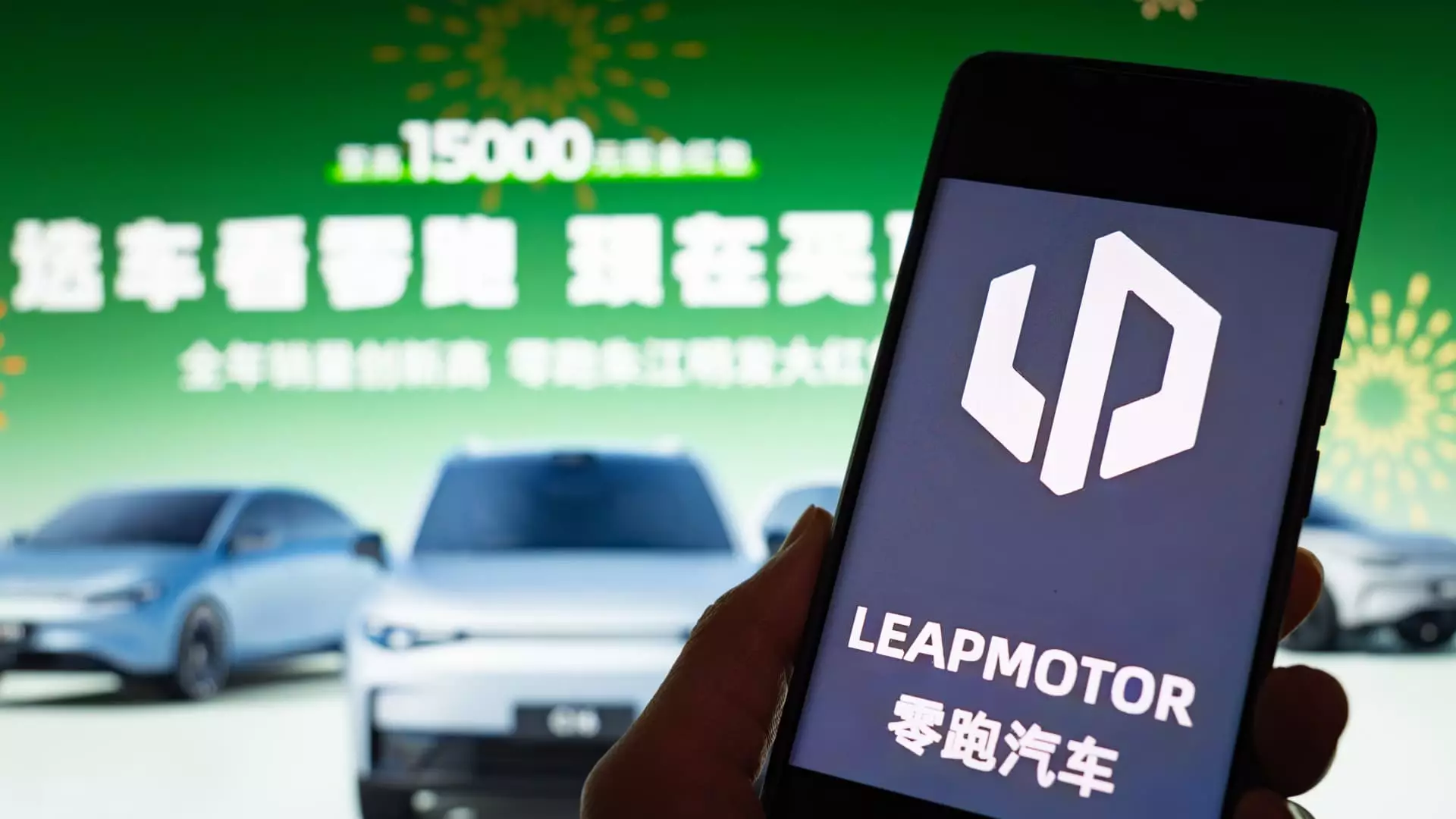The electric vehicle (EV) sector is witnessing a dramatic reshaping, mainly driven by ambitious manufacturers like Leapmotor and Aito. Both companies reported impressive delivery figures in May, signaling a potent surge in production amidst a heated price war that has left many rivals struggling to maintain their ground. Leapmotor, supported by Stellantis, made waves by delivering an astounding 45,067 vehicles—an incredible 148% increase from the same month last year. This achievement underscores a transformative moment for the company, driven by consumer demand and innovative offerings.
On the other side of the spectrum, Aito has also marked its territory, announcing deliveries of 44,454 vehicles—a record performance that showcases its commitment to combining luxury with advanced technology. Utilizing Huawei’s technology, Aito recently launched the Maextro S800, an ultra-luxury sedan priced at 708,000 yuan. The continuous advancement of these brands highlights their ability to adapt and innovate while navigating the increasingly turbulent waters of the EV market.
BYD’s Strategy: Price Cuts and Market Control
While newer players see monumental growth, industry titan BYD remains an unstoppable force. With sales of 376,930 vehicles in May alone, BYD has solidified its position as a heavyweight in the industry. However, this success has not come without its challenges. Recently, BYD implemented aggressive price cuts across 22 of its models, reducing the Seagull hatchback’s price by a striking 20%. Such moves have sparked concerns among competitors, creating a ripple effect that consequently lowered stock prices across the board, revealing the ever-competitive landscape of the EV market.
This strategic pricing could potentially be perceived as an aggressive tactic aimed at stifling competition, which is fueling fears of a financial fallout reminiscent of the Evergrande crisis. Although BYD has denied allegations of pressuring dealers over cash flow, these accusations have nonetheless highlighted the industry’s vulnerabilities during this price war.
Shifting Trends: Startups Striving to Keep Pace
While established brands like Leapmotor and BYD bask in success, prominent startups such as Xpeng and Li Auto illustrate both the promise and the challenges of emerging EV manufacturers. Xpeng reported deliveries of 33,525 vehicles, slightly down from the previous month but still reflecting a year-on-year growth of 230%. This remarkable consistency denotes the company’s commitment to innovation, as evidenced by their recent release of the Mona M03 Max and Plus models.
However, not all startups are witnessing such growth. Li Auto’s modest increase of 16.7% in deliveries, totaling 40,856 units, signifies a slowing momentum relative to competitors. Similarly, Geely-owned Zeekr managed only a slight growth of 1.6%, signaling that maintaining market share is becoming increasingly difficult. Even Nio, which previously thrived, saw its deliveries dip to 23,231 vehicles, although it still marked a 13.1% year-on-year increase.
Diversification Amidst Global Challenges
As the competition continues to escalate in the domestic market, many Chinese EV manufacturers are setting their sights abroad. The challenges posed by tariffs from the EU and the U.S. indicate that many may need to pivot to emerging markets for growth. BYD, for example, has recently announced its entry into the Beninese market, a strategic maneuver that could offer new opportunities as other avenues become more restricted.
The potential for expansion is not solely rooted in traditional markets; emerging economies, particularly in Africa, present fertile ground for growth. Reports suggest that companies are looking to capitalize on the rising demand for EVs in these regions, indicating a shift in strategy that could redefine market dynamics.
While the EV sector is currently in a state of transformation, the successes of Leapmotor and Aito are clear indications that innovation, strategic pricing, and adaptability will be the drivers of success moving forward. As the year progresses, all eyes will be on whether these manufacturers can maintain their momentum in the face of fierce competition and shifting global economic landscapes.

